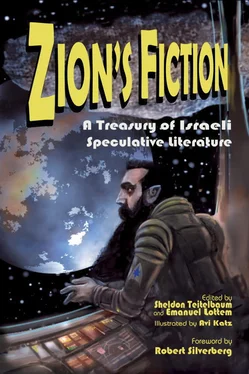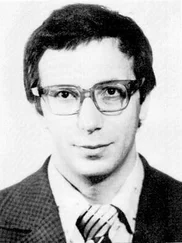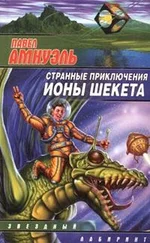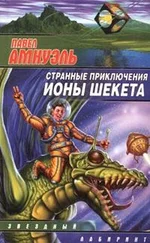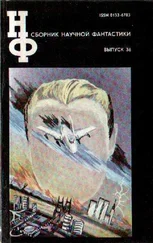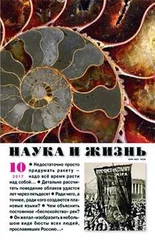“Yes,” I nodded. “I proved it. If in Branch N of the multiverse the world-line of object A is a segment of length L, this line cannot be extended within its branch by grafting it to other realities.”
“You proved it. And what do you want from me now, Dima? Ira does not exist in this here-and-now. You could not keep her.”
“I could not…”
“You could not hold on to her,” Oleg repeated. “And what is it to us that our Irisha…”
He said “our.” He still lived with the feeling that she had only temporarily left him for another and would come back.
“…our Irisha is still alive in a billion other branches of the multiverse?”
“You could,” I said. “You are a genius at splicing. You can tie branches together and graft them, like Michurin grafted an apple branch to a pear tree.”
“And how did it end?” Oleg chuckled. “Michurin. Burbank. Lysenko.”
“Won’t you even try!” I yelled.
Oleg stood up and walked toward the window as if to put as much distance between us as possible, as if my presence made it hard for him to breathe, to think, to live.
“I tried. All the time, I tried,” he said, his voice as hollow as if he spoke under water.
“You….” I mumbled in confusion. He could not have known about Ira.
“I can do nothing for myself, you see? Think, Dima, you are one hell of a theoretician. If I am in Branch N, then all possible splices that can change my fate…”
“Are bound by the causality of that branch—yes, I proved that in my third year of study,” I said. “But you said that you tried….”
“I couldn’t avoid trying. What if the theory were wrong?”
We sat in silence, each thinking about what had been said.
“How did you know about Ira?”
Oleg turned and looked at me with a silent accusation.
“Well, Dima, if you found me…. You didn’t have to look for me, I checked the university web page every day, I knew about everything that went on. I could not stand not knowing.”
“That never entered my mind,” I muttered. “I would have figured out where you were long ago.”
“I doubt it,” he said. “I took measures. When Ira died, the alumni association ran an obituary the same day. I tried, right there and then. God, Dima, I leaped from branch to branch like a neurotic monkey, spliced more realities than I had ever allowed myself before—and, after that, never again.
“I didn’t…”
“Of course you didn’t feel a thing!”
“Sorry,” I said. “I am not myself today. Stupid; I should have known, I could not feel a break, my reality was contiguous with my past.”
“You had hundreds of realities, and in all of them Ira died, and I was always late, I made it to the funeral in one hundred seventy-six branches.”
“You went to a hundred seventy-six funerals?” I said, horrified.
He didn’t say anything, and I understood why he looked so old to me. I would have gone mad in his place.
“Then,” I said, “there was nothing…”
“You are the one who proved that theorem,” said Oleg roughly, “and I never found experimental evidence to the contrary.”
“So that’s how it is,” I muttered. Something hit me all at once, a year’s worth of fatigue, perhaps, and maybe now I made decisions one after another, each taking me to a different branch, each branch beginning with: “So that’s how it is” parroted over and over.
“Well, that is all,” said Oleg and stood up abruptly. He reached to shake my hand; his fingers were, for some strange reason, dusted with chalk. “Enough already with the histrionics. You lived by hope alone for a year, looking for me, and I lost hope a year ago and had the time I needed to come to terms with it. I can do nothing for you, Dima. Not—a—thing.”
I stood up.
“Leaving?” Oleg asked, his voice flat, without giving me his hand. “You looked for me for such a long time. We could have coffee, dinner, you could tell me about the university. Did Kulikov defend his dissertation?”
“You’ve been on their web site.” I shrugged.
“No, not since….”
“You,” I said, from the doorway, “you splice realities to make lives better.”
“Of course,” he nodded.
“And those you turn away?”
“So that’s the question.” He came closer and with a long-familiar gesture put both his hands on my shoulders. His palms were unpleasantly heavy, and I sagged like Atlas under the weight of the sky.
“You think I turn away those whose fate I cannot channel in a better direction,” he said, looking straight into my eyes. He did not even blink, and I tried not to blink as well. “You are mistaken, Dima. I have rules. Well, not quite rules; I want nothing to do with unpleasant people, or with people whose happiness depends on the suffering of others. I choose, yes. Do you think I have no right?”
“Oh, come on,” I muttered. “It’s just that…”
“You thought of what I could have done for you?”
“No.” I chuckled. “You would not do this, and it’s not what I would want.”
“You do want,” he said roughly. “Don’t lie, your eyes betray you. You want to be happy, everyone does. You want her specter to stop haunting you. You want to forget…”
“No!”
“Fine; to remember, just about enough to light a candle, that is sufficient. And live a happy life. You came to have your life spliced with a branch in which you are happy and prosperous…”
“No,” I said, but blinked and lowered my eyes. I wanted that. So what? This he could do, I knew. I also knew he would not lift a finger to help me.
“Yes,” he sighed and pressed even harder (or did I imagine it?) on my shoulders. “You know, Dima, when you came in and we recognized each other, the first thing I did was run through a list of splices, in my head, that I could have made. For you. Even if you had not asked me, I decided to do it. Because to live without Ira…. I know how it was for me, but I cannot do anything for myself because of your damned theorem. But I could help you, yes, or else what purpose do I have?”
He took his hands from my shoulders at last, and I stood straight, feeling suddenly light. Was it the lifting of that weight that made me feel relieved, or thinking, for a moment: Oleg can, Oleg will ?
“There isn’t a single line in all of the multiverse,” he said, “where all is well for you. Not one. What can I do with that?”
“Nonsense!” I exclaimed and stepped back from him. “You know that’s nonsense, why do you even…. We discussed this problem since…”
“Yes, we discussed,” he interrupted.
“The multiverse is infinite!” I exclaimed. “There is an infinite number of branches of reality, and all without exception can be embodied as our reality, any version of any event, phenomenon, process, and that means…”
“That means,” said Oleg regretfully, “that you were right, not I. You proved there’s only a finite number of branches because the wave function for each event has a limited number of solutions.”
“Yes, but since then…”
“But I,” Oleg raised his voice, “I maintained that there is an infinity of branches, and in the multiverse’s infinity there must exist all possibilities of human fate—happy and unhappy. I was sure! But now I know I was wrong. The branching of destinies is limited, Dima. Forgive me. I wanted. Very much. At least in Ira’s memory. It’s no use. There is a huge number of versions of your life, but none where you are happy.”
“Well, then,” I said, feeling an emptiness in my soul which I now knew could never be filled, “we’ve resolved an old scientific debate. For once you have admitted that I’m right.”
“The branching is finite,” he said. “Aren’t you happy to be right?”
Читать дальше
